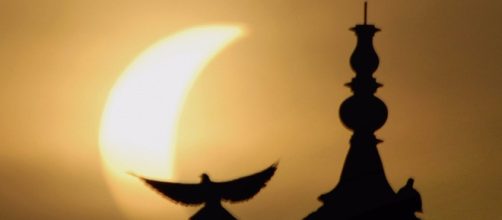The upcoming solar eclipse on August 21 will mantle thousands of people in short-term, mystifying darkness across the United States. The Total Solar Eclipse will be visible on part of the U.S. territory. To observe the behavior of the animals during the event, the California Academy of Sciences has set up a participatory application.
What do humans do during an eclipse? It's easy: they look at the sky. But there is, however, a little information on the reaction of animals during an eclipse. This is why the California Academy Of Sciences has decided to create an application, iNaturalist, where everyone will be able to record his/her observations.
Animals get scared
Here is some more information on the subject. On June 3, 1239, the sun had disappeared a few moments behind the Moon to plunge a part of Europe into the darkness. Plunged in the dark, the birds stopped singing. "All animals and birds were terrified, and wild beasts could easily be caught," wrote the Italian priest Ristoro d'Arezzo in a magazine. The change in behavior can be seen in local wildlife, pets especially in birds.
Horses that go mad, birds falling from the sky and much more. Anecdotes about the behavior changes of animals during an eclipse are numerous but studies are counted on the fingers of the hand. "There are many anecdotes about how animals and even plants behave in the face of a total eclipse," said Elise Ricard, spokesperson for the California Residues Life responds on the project in San Francisco, at Science News.
But there is not much scientific research on the issue.
Poultry mistakes to be night
According to the (rare) previous studies, observers could expect to see locusts and birds stop chirping, singing, midges and insects cluster in a cloud, spiders disassemble their webs, frogs croak. Forbes reports that the animals having the most obvious change in behavior include insects, birds, and bats.
During a total eclipse, insects start biting, Bats begin hunting and even the poultry and cattle would go back to their house being confused by the brief darkness.
The best view of the total solar eclipse can be noticed in the Vancouver Zoo in Canada as it is much closer to the solar eclipse’s path. In a post to the Global News, Menita Prasad, Vancouver Zoo's animal care manager wrote, "zoo workers are very much excited to watch the eclipse. The staff will be monitoring the animal behavior closely as the sky darkens and the temperatures fall mid-morning," added Menita Prasad.


